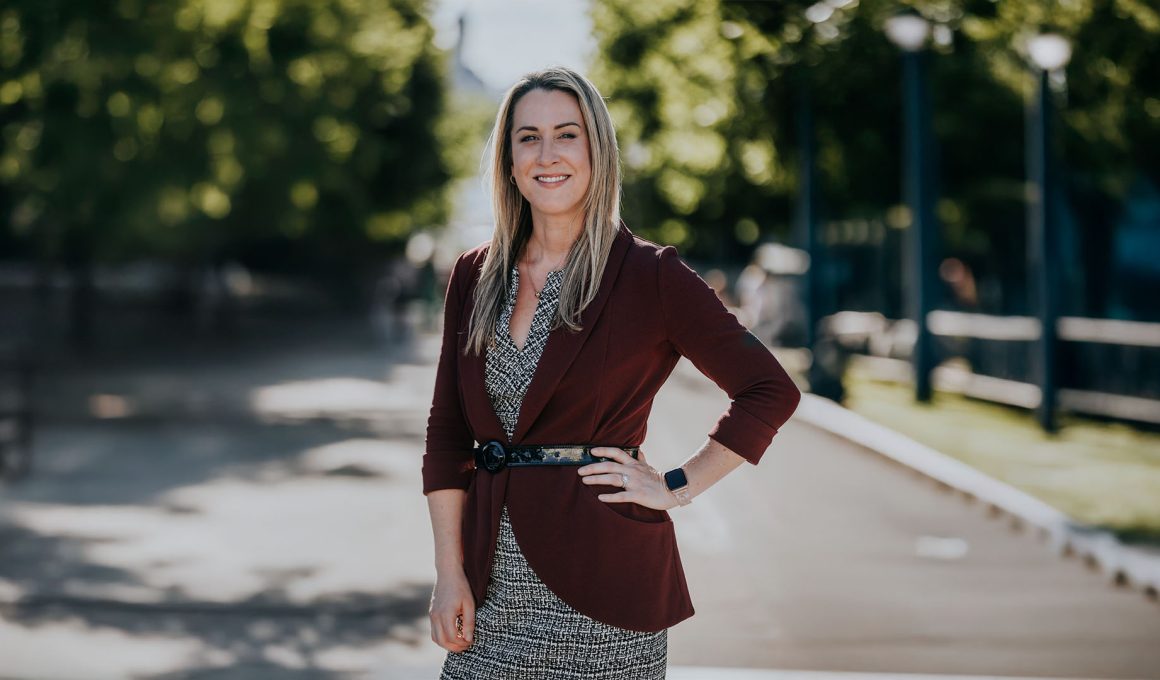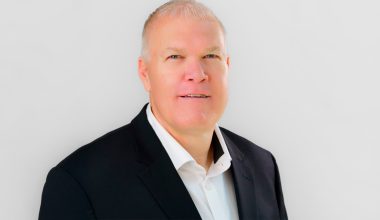True influence begins in the communities where people live and work. Elizabeth K. Whitney’s approach centers on nurturing meaningful relationships with a smaller circle of policymakers whose districts align directly with her clients’ service areas. As Managing Principal of Meguire Whitney, a boutique lobbying firm that represents consumer-owned and not-for-profit utilities, Whitney focuses on helping clients navigate the evolving world of federal energy policy with authenticity and purpose.
“The difference is one of depth instead of scope,” Whitney says. “Our clients tend to have strong relationships where they’re located. They’re utilities that serve a defined service territory, and that gives them a natural connection to the people their representatives serve. We help build on that shared interest in the energy future of those stakeholders and translate it into advocacy in Washington.” That focus has helped her clients, which include community-owned and cooperative utilities, have their voices heard.
The Challenges of Being Heard
Not-for-profit utilities are community or customer-owned energy providers that reinvest any surplus into reliability, infrastructure, and affordability rather than paying profits to shareholders. Municipal utilities are typically owned by local governments, while electric cooperatives are directed by their ratepayers, ensuring customers have a direct voice in decisions. Both models prioritize public benefit and accountability over profit.
Like many mission-driven organizations, their limited resources are dedicated to serving communities first, making it difficult to sustain a steady and influential voice in the capital. Most don’t have a permanent Washington office. “They rely on us to be that steady presence, to keep them informed, to facilitate regular visits with their delegations, and to ensure their perspectives are reflected in the policy conversations taking place,” Whitney explains.
The challenge is that the energy transition is moving rapidly. “Policy is being made to address the rise of data centers and the merging of the tech and utility sectors,” Whitney says. “But policymakers often view utilities as one monolithic model, usually the investor-owned type that operates for profit and is regulated by state commissions. That doesn’t reflect the business models of municipal or cooperative utilities.” Municipal utilities, for instance, are government-owned and do not operate on a profit motive. Electric cooperatives are governed by their own ratepayers. “When legislation gets written,” Whitney explains, “those distinctions can be lost, and the resulting policies might not account for how differently these organizations operate.”
Three Strategies for Building Trust in Washington
Whitney’s work centers on three core strategies that any not-for-profit energy leader can use to build lasting relationships with policymakers: consistency, alignment, and partnership.
- Consistency: “You have to show up,” Whitney says. “Come to Washington frequently enough that your name and your organization are familiar. Participate in the dialogues that are happening, not just when you need something. Policymakers remember who’s at the table over time.”
- Alignment: This means finding common ground even amid political polarization. “Energy utilities aren’t red or blue,” Whitney says. “They’re focused on keeping the lights on affordably and reliably, and advancing decarbonization where possible. Those goals resonate across the political spectrum. Energy reliability and affordability are shared values.”
- Partnership: “You want to be a resource for your policymakers,” she says. “Share information about what’s happening in your community, for example, how national debates play out locally, what you’re seeing in the market, how supply chains or cybersecurity are affecting you. Policymakers value those ground-level insights.”
That spirit of partnership extends to celebrating successes as well. “If you’re opening a new battery facility, make sure your congressional representatives know,” Whitney says. “Invite them or their staff to participate. It strengthens the relationship and keeps communication open.”
Technology and the Human Connection
As artificial intelligence and predictive analytics transform the energy sector, Whitney believes their greatest impact will be on operations. “Data will never replace relationships,” she says. “But it can make those relationships more informed. Policymakers can make better decisions when they understand what the data is showing and how it connects to what’s happening on the ground.”
Whitney sees AI reshaping how the energy grid functions, from smarter devices to more efficient delivery systems. At the same time, the explosion of energy-hungry data centers poses a challenge to the electric sector. “We have to figure out how to provide the power necessary for AI’s promise, and for national security, without compromising reliability or affordability,” she says. Still, she insists, the cornerstone of effective advocacy remains human. “Nothing replaces that one-on-one connection. Making your annual or biannual trip to Washington to sit down with your representatives.”
Expanding Reach Through Regional Coalitions
While Whitney emphasizes local focus, she also encourages collaboration across regions. “Small utilities can expand their reach by joining coalitions and trade groups,” she says. “Regional associations help members facing similar challenges, like a small public utility in Oregon and one in Washington State, to advocate together and access more congressional offices.” Such coalition-building amplifies the voice of not-for-profit energy companies. “Energy issues are often regional,” she explains. “By coming together, these utilities can help shape more inclusive and effective national policy.” With two decades of experience in federal government and energy, she continues to champion the community-focused utilities that power much of America by keeping trust and collaboration at the center of her work.
Connect with Elizabeth K. Whitney on LinkedIn to learn more about how she helps the energy sector build strategic relationships with policymakers.


